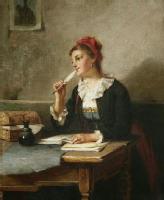Assessment
The module is assessed by 1 x 4500 word essay and 1 x 2 hour examination
Please follow the official departmental deadlines specified on the undergraduate website.
Students also complete two short essays which must be submitted via Tabula by the end of week 7 in Term 1 and the end of week 4 in Term 2.
Students have the option to complete a third 'mock exam' essay in Term 3.
First Short Essay Question Options:
1. Does the rise of 'gender history' once again marginalise the contributions of women?
2. What are the challenges of writing ‘men’s history’ or the history of masculinities?
3. Are there more similarities than differences in the writings of Rousseau and Wollstonecraft on gender?
4. In what ways is the eighteenth-century culture of consumption gendered?
5. Is the historiography of the industrial revolution too male-centred?
6. Drawing on at least 2 examples, evaluate the usefulness of poetry in the study of anti-slavery?
7. “Women only played a peripheral role in political life before 1918.” Discuss.
8. Why were early feminists so critical of the institution of marriage?
9. Was the Victorian family a source of stability or stress for Victorian society?
10. In what ways has ‘queer theory’ influenced our understanding of nineteenth-century Britain?
11. Assess the ways in which Bram Stoker’s Dracula reflects Victorian attitudes towards sexuality?
12. How was the figure of the prostitute constructed by Victorian Society?
13. To what extent did changes in education serve to reinforce traditional gender roles?
14. With reference to gender, in what ways did leisure prove to be a ‘transforming agent’ in Victorian society?
15. Was women's involvement in politics in the late nineteenth century a gift from men?
16. Why did many women oppose the introduction of a female franchise?
17. How did conflict shape popular concepts of masculinity?
18. What does Vera Brittain’s Testament of Youth tell us about women's and men's experience of the first World War?
19. What are the links between motherhood and the state in the interwar period?
20. Do you characterise the period 1760-1939 as transformative when thinking about gender?
Second Short Essay: Suffragettes in Popular Culture
2018 marks the 100th anniversary of the Representation of the People Act which gave all men and some women over 30 the opportunity to vote for the first time. It is also the 90th anniversary of the Equal Franchise Act which lowered the female voting age to 21 in line with male voters.
For this assignment you will need to evaluate how the Suffragette Movement and/or the passing of the Representation of the People Act (1918) is represented in contemporary popular culture. Think about whether opinions towards female suffrage has changed over the past century and whether you feel it has received a fair portrayal.
You will need to select at least one source: this can be a film, novel, play, image, documentary, exhibition (museum/online), biography, news items, to name but a few. Below is a list of sources you may wish to explore but you are in no way restricted to these. If you are unsure if a source may be suitable for this assignment feel free to discuss it with me before you start the assignment.
Exhibitions/Collections/Documentaries
Living Heritage: The Vote 100 Exhibition Project - link to various exhibitions
https://www.parliament.uk/about/living-heritage/transformingsociety/electionsvoting/vote-100/vote-100-project/vote-100-project-info/
The National Archive website - collections and blogs
http://www.nationalarchives.gov.uk/help-with-your-research/research-guides/womens-suffrage/
Suffragettes Forever: The Story of Women and Power (BBC Documentary)
'Suffragism' BBC Radio 4 In Our Time http://www.bbc.co.uk/programmes/b00jjgg8
Suffragettes in the Media
The Olympic Opening Ceremony 2012.
Emmeline Pankhurst statue in Parliament Square 2017.
National Trust: Celebrating the Anniversary of female suffrage- Bodnant in Conwy, Cliveden in Buckinghamshire, Mount Stewart in County Down, Gunby Hall in Lincolnshire, and Shaw’s Corner in Hertfordshire all have events or exhibitions.
Useful website :https://ukvote100.org/
Film/TV
For a full list of films and tv series relating to the movement seethe IMDb database online.
Suffragette (Dir. Sarah Gavron, 2015) copy available on short loan from university library.
Up the Women (BBC 2013)
Novels/Plays/Biographies
There are a vast number of novels relating to the suffragette movement as any cursory internet search will reveal.
F.M. Ford, Parade's End, (1924-28). trilogy and bbc adaptation
C. Lacey, How the vote was one and other suffragette plays (1985) available in library.
K.Connelly, Sylvia Pankhurst: Suffragette, Socialist and Scourge of Empire (2013) ebook.
Constance Maud, No Surrender (1911)
Diane Atkinson, The Suffragettes in Pictures (2010)
Sally Heathcote, Suffragette (2014) graphic novel.
Ian McDonald, Vindication! A Postcard History of the Women’s Movement (1989)
Tracy Chevalier, Falling Angels (2001) novel
Elizabeth Robins, Votes for Women (1907) play
Christabel Pankhurst, Unshackled: The Story of How We Won the Vote (1959)

